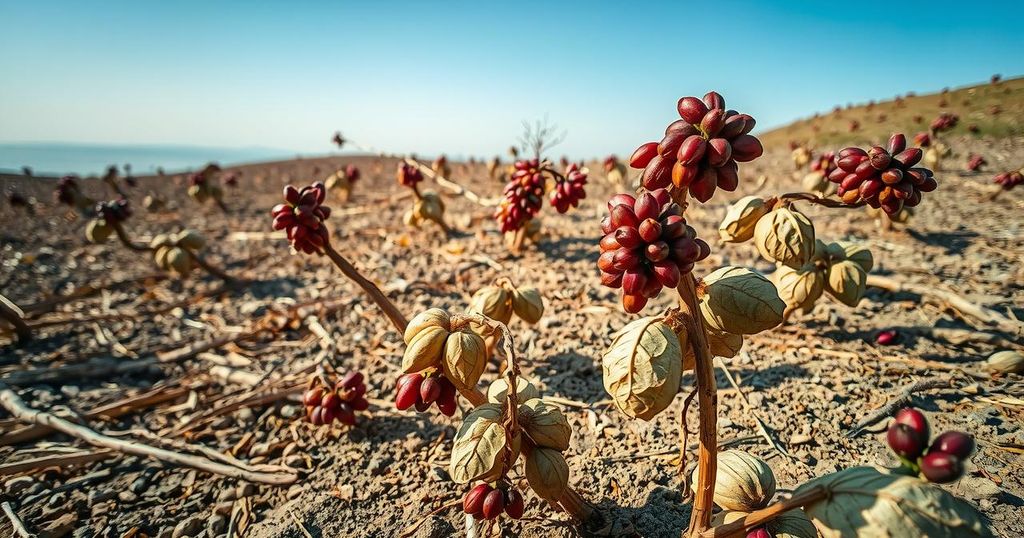Lack of Rain in Brazil Boosts Coffee Prices
Brazil is experiencing a severe drought, leading to a decrease in coffee supply and a rise in prices. As the country produces nearly 40% of the world’s coffee, the impact is significant. The ongoing dry conditions raise concerns over future harvests and challenge farmers and consumers alike.
Brazil, a country renowned for its coffee production, is facing a pressing issue due to a significant lack of rainfall. This unexpected weather pattern has directly impacted coffee supply, which in turn has resulted in an uptick in coffee prices on the international market. As Brazil produces about 40% of the world’s coffee, any disruption in its yield resonates globally, leaving buyers anxious about rising costs.
The dry conditions have been particularly detrimental, with many coffee farms reporting reduced production levels. Producers are struggling to maintain quality and quantity, leading to concerns over future harvests. This has set off a chain reaction, with coffee prices climbing as consumers fear potential shortages.
Indeed, the drought has spurred buyers to secure coffee supplies earlier than usual. As prices continue to rise, consumers around the globe may soon feel the pinch in their wallets. Experts warn that if dry conditions persist, we could see even further increases. This adds pressure on producers to find ways to mitigate the effects of the drought while still meeting demand.
In the wake of rising prices, some analysts speculate that the coffee market could undergo changes in response to these challenges. Farmers may shift their practices or crops to adapt to the shifting climate. Meanwhile, consumers might change their purchasing habits as they navigate these price hikes, leading to a broader change in coffee consumption patterns around the world.
The implications of the drought extend beyond economics; they also highlight the impact of climate change on agricultural sectors. As weather events become increasingly unpredictable, vulnerable industries like coffee may have to rethink long-term strategies to ensure sustainability and stability in production.
The drought in Brazil is causing coffee prices to surge as production levels drop. With Brazil being such a significant player in the global coffee market, any disruption translates into potential shortages and increased costs. As producers seek solutions, the ripple effect on consumers and the market dynamics may reshape the coffee industry moving forward. Such events underscore the threat climate change poses to agriculture, signaling a need for adaptive measures in the sector.
Original Source: www.barchart.com




Post Comment